How To Make Mineral Water At Home
Ditch those plastic bottles of packaged water for this homemade formula.
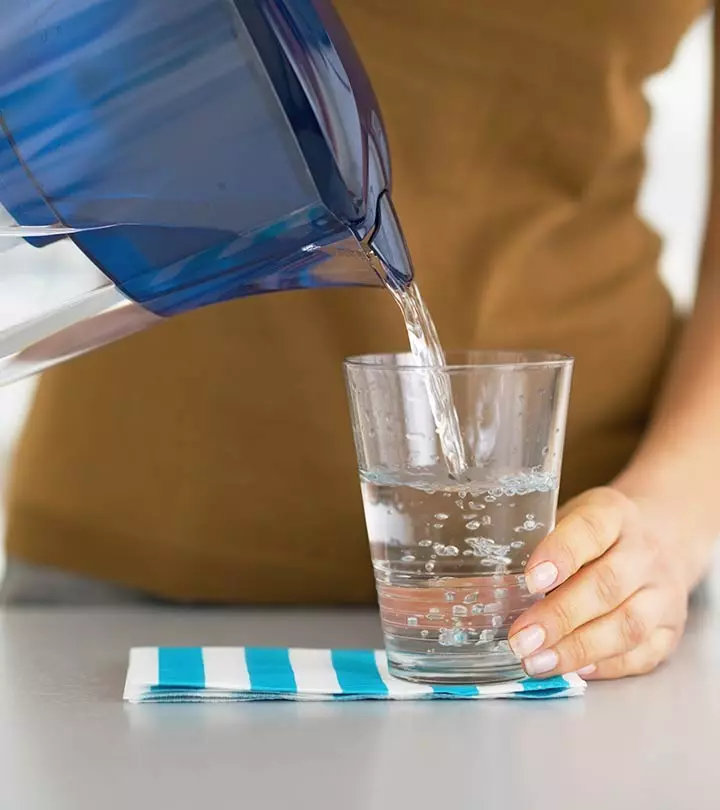
Image: ShutterStock
The consumption of mineral water is increasing because of better health awareness. The water is loaded with minerals and offers an array of benefits. The good news is you can prepare mineral water at home by adding minerals to water through baking soda and potassium bicarbonate. The process is simple, but the benefits you receive are ample. This article will serve as a handy guide for you. Continue reading to discover more about mineral water and its preparation method.

 Fun Fact
Fun FactIn This Article
A 5-Step Guide To Making Mineral Water At Home
It is important for you to understand that mineral water is different from filtered water. While filtered water is just free of dirt and bacteria, mineral water is pure and rich in life supporting minerals like calcium, magnesium, sodium and potassium. People might contradict that it is practically not possible to afford expensive cans of mineral water on a daily basis. And practically, this is a valid contradiction too.
Forget about having a carbonated water machine to get DIY carbonated water and opt for something more refreshing and pure. Best of all, this bottled water alternative is similar to having natural spring water at home without the hassles of home water carbonation. You can prepare mineral water in your home itself. Get your hands on water filtration systems, a good mineral water dispenser, and some common home ingredients to have one of the best drinking water systems. These five simple steps will show you how!
Note: Mineral water made by this method may not have the same quality or mineral content as what you would find in commercially bottled mineral water. This process is meant for personal use only and offers an affordable way to improve filtered water. However, it may not replicate mineral water exactly.
1. Filter Tap Water
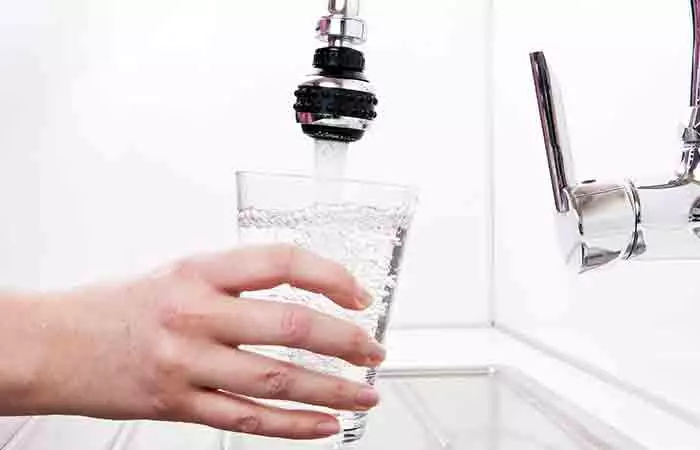
Filtering tap water is the first step to making mineral water at home. Water purification at home is not difficult. You can use your regular water purifier for this purpose. Take around 1 or 2 litres of tap water in a jar and transfer it to your water filter. Let the water get completely filtered. Once the water is purified, you need to transfer it into an open vessel. Make sure that the vessel is clean and free of any smell/odor. You can also look for specialized pitcher filters for mineral water. Reverse osmosis systems or under-sink water filtration systems can also help attain pure, filtered water.
2. Add Baking Soda
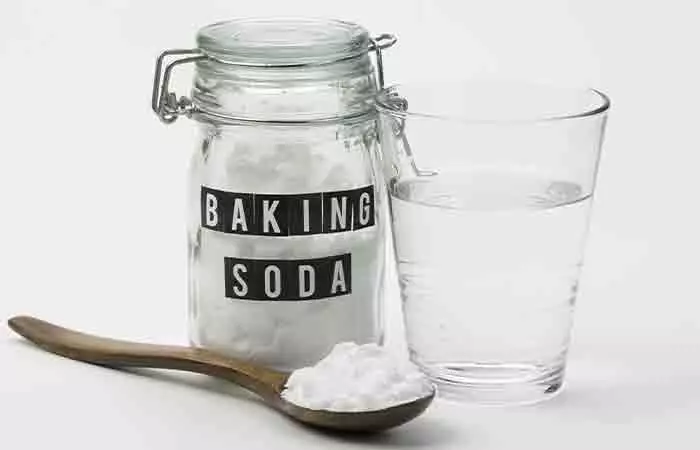
The next step to making mineral water at home is adding baking soda to the purified water. Add around 1/8thteaspoon of baking soda to 1 litre of purified water. Increase the amount to 1/4th of a teaspoon for 2 litres of purified water. Baking soda/sodium bicarbonate essentially adds sodium to water. This mineral cures certain health conditions like indigestion, constipation, bloating, heartburn, and even arthritis (1), (2). Sodium also helps prevent dehydration and electrolyte imbalances (3). It is also needed for the muscles and nerves to function properly (4).
However, excess sodium may contribute to high blood pressure and also cause damage to the heart, kidneys, and bones (4). So, you should be very mindful of how much sodium you include.
This is the first step of converting filtered water to mineral water. You have successfully made alkaline water at home without the help of water ionizers. Alkaline water benefits your health in many ways, including body detox, weight loss, healthy hair growth, etc. (5). You can save this water in water distillers or countertop water dispensers to consume it later.
3. Add Epsom Salt
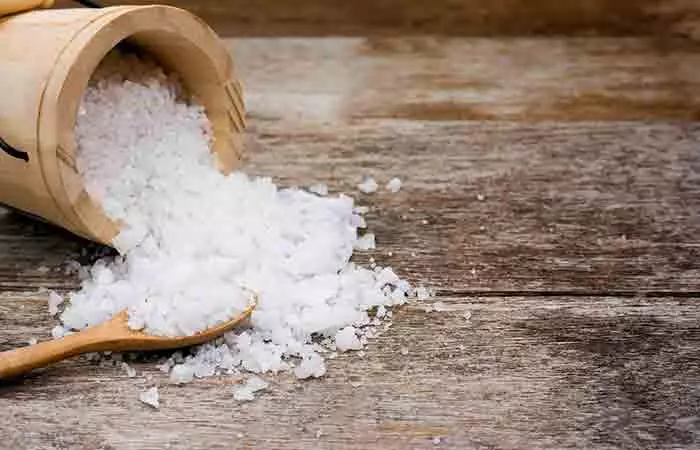
Once you add baking soda to purified water, add about 1/8th teaspoon of Epsom salt to 1 liter of filtered water treated with baking soda. Epsom Salt is rich in magnesium that contains antimicrobial properties (6). So, it may work like a disinfectant and keep humans safe from bacterial attacks. Thus, it largely increases the purity of the already filtered water.
Magnesium also helps regulate muscle and nerve function, blood sugar levels, and blood pressure. It also supports protein synthesis and is needed for energy production and bone development. The mineral also helps maintain a normal heart rhythm, benefiting your heart health (7).
Consuming too much of this salt can be dangerous, as high levels of magnesium in the blood may lead to serious health problems, including heart failure. This can be seen in the case study of a 46-year-old woman who intentionally consumed a large amount of Epsom salts, leading to a dangerously high magnesium level of 9.7 mmol/L. The normal range is 0.70–1.0 mmol/L. As a result, she experienced muscle weakness, vomiting, and confusion, and eventually became unconscious. Her heart rate also slowed dangerously (8).
4. Add Potassium Bicarbonate
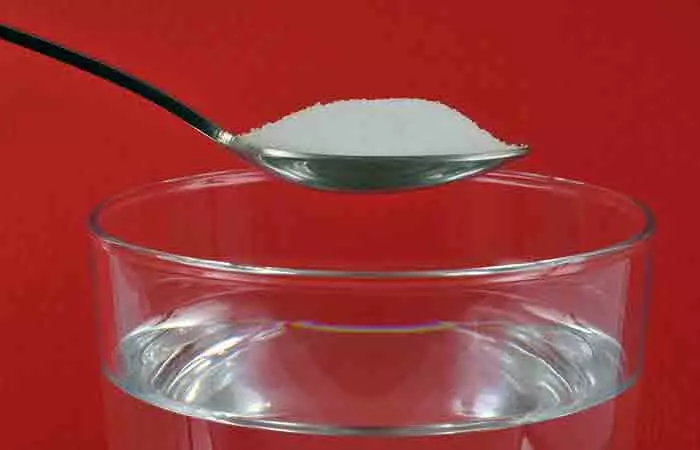
The next step is to add potassium bicarbonate to the purified water that is treated with sodium bicarbonate and Epsom salt. Potassium bicarbonate maintains the blood pressure in humans. It is an essential mineral that maintains cardiac health and lessens the risk of heart attacks largely (9).
Potassium is also needed by the body to regulate fluid balance. It also helps with muscle contractions and nerve signals. Adequate potassium intake may also help prevent the development of high blood pressure. That said, it is important to avoid too much potassium, as this may lead to a condition called hyperkalemia. This may lead to serious heart problems, including a dangerously slow heartbeat, cardiac arrest, or irregular heart rhythms (10).
Add around 1/8th teaspoon of potassium bicarbonate to the treated purified water to make mineral water.
5. Mix Well
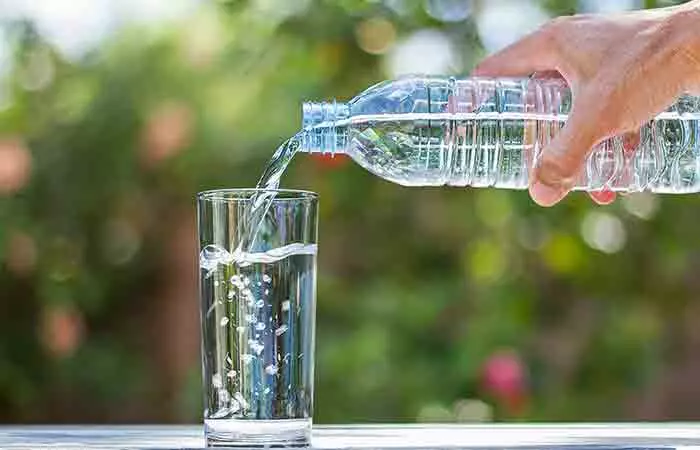
It is important that the ingredients added to the purified water be mixed well. You can use a soda siphon for the purpose of blending all the minerals well in purified water. Soda siphon is a gadget that is extensively used to disperse carbonated drinks or sparkling water. It comes with a cartridge and handle. Attach the cartridge with the siphon. Pass the water you made through the handle. Squeeze the handle as you pass water through it. Completely purified mineral water is what you get from the other end of the siphon. Store this water in mineral infusion pitchers.
 Trivia
TriviaThe above listed 5 steps are the simplest means that help you how to make homemade mineral water. It is rich in sodium and potassium. So, try this method at your home to reap amazing mineral water benefits in a cost-effective way!
Most people often confuse mineral water with sparkling water. But they aren’t the same. Read on to know how they are different.
Key Takeaways
- Mineral water is regular water containing natural minerals.
- Filtered water is free of dirt and bacteria.
- Minerals like Epsom salt, sea salt, and magnesium sulfate can be added to regular water to create mineral water at home.
- Potassium bicarbonate helps maintain blood pressure, lowers the chance of heart attacks, and is an essential mineral that helps maintain overall cardiac health.
Is Mineral Water The Same As Sparkling Water?
No, it’s not. Mineral water derives its minerals naturally from its water source, whereas sparkling water attains its fizzy state purely through added carbonation. Mineral water has a subtle, earthy flavor because of its minerals. It can also be slightly salty or bitter. Sparkling water, on the other hand, has a plain carbonated flavor. Its primary characteristic is the bubbly sensation from carbonation that makes it refreshing.
While mineral water is commonly consumed on its own for its potential health advantages and distinctive taste, sparkling water is widely used as a mixer in both alcoholic and non-alcoholic cocktails.
Ready to elevate your homemade mineral water? Here are some practical tips to optimize your brewing process.
Tips For Best Results
- Opt for pure, high-quality mineral salts to maximize the benefits of your homemade mineral water.
- Begin with small quantities of minerals and gradually increase them to your desired taste.
- Keep your mineral water stored in a cool, dark place to preserve its potency.
- For optimal benefits, consume your mineral water fresh. Avoid storing it for extended periods.
Infographic: Step-By-Step Guide To DIY Mineral Water
Making mineral water at home is not complicated if you know what you have to do. Collecting the right ingredients is all you need to do – for the process that follows is quite simple. Check out the infographic below to learn more.
Some thing wrong with infographic shortcode. please verify shortcode syntaxWater fortified with minerals like calcium, magnesium, potassium, and sodium is called mineral water. Fortunately, you can prepare mineral water at home in just a few steps — filter tap water and add baking soda, Epsom salt, and potassium bicarbonate in prescribed quantities. You can also use a soda siphon to blend them with filtered water. These minerals have health benefits ranging from improving cardiovascular health to reducing indigestion, bloating, diarrhea, heartburn, and arthritis. Try this method at your home and save some money!
Frequently Asked Questions
Is making mineral water at home better for the environment than buying bottled mineral water?
Yes, making mineral water at home is generally better for the environment than buying bottled mineral water. By reducing the consumption of plastic bottles, you contribute to reducing plastic waste and minimizing the environmental impact of the bottled water industry.
Is it okay to drink mineral water every day?
Yes, drinking mineral water daily is generally considered safe.
Is boiled water the same as mineral water?
No, there is a fundamental difference between the two. Boiling normal water at a higher temperature removes microbes from the water but not harmful chemicals. Mineral water goes through a purification process where harmful chemicals are removed but the essential minerals are retained.
What are the disadvantages of mineral water?
Mineral water is slightly more acidic than regular water. This may cause hiccups and bloating. It is also considered more expensive and may cause more damage to the environment.
Can mineral water cause kidney stones?
No, mineral water does not cause kidney stones. The calcium and magnesium content in mineral water may be beneficial in managing kidney stones (11).
Is mineral water better than normal water?
Both mineral and tap water are considered safe for consumption. However, normal water is considered convenient and less harmful to the environment.
Illustration: How To Make Mineral Water At Home
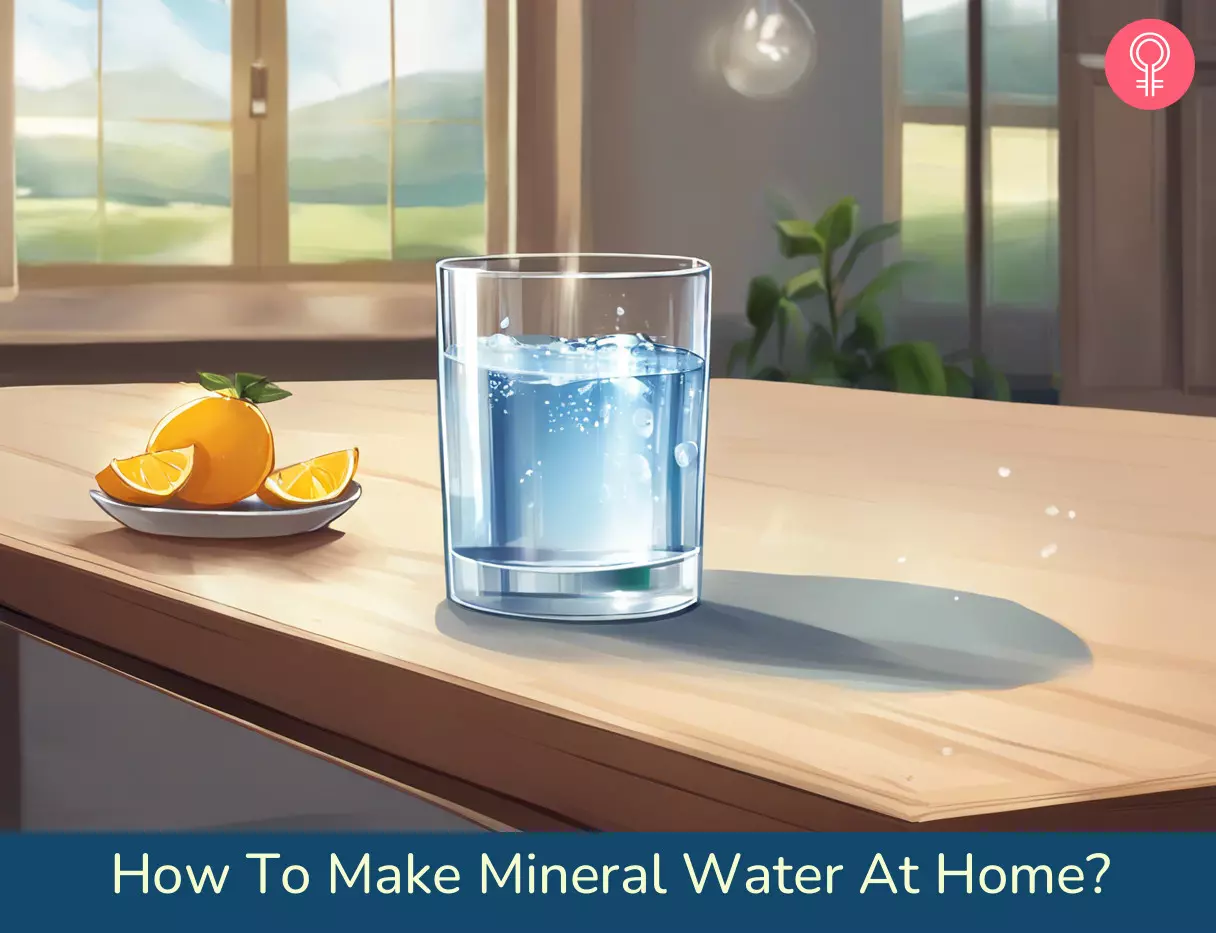
Image: Stable Diffusion/StyleCraze Design Team
Learn how to make your own mineral water at home with just pink Himalayan salt and water! Dive into this video to find out how to go about it for you to stay hydrated all the time!
References
Articles on StyleCraze are backed by verified information from peer-reviewed and academic research papers, reputed organizations, research institutions, and medical associations to ensure accuracy and relevance. Read our editorial policy to learn more.
- Grocery store baking soda. A source of sodium bicarbonate in the management of chronic metabolic acidosis
https://pubmed.ncbi.nlm.nih.gov/6319065/ - Once-daily omeprazole/sodium bicarbonate heals severe refractory reflux esophagitis with morning or nighttime dosing
https://pubmed.ncbi.nlm.nih.gov/24448652/ - Chapter 15 Fluids and Electrolytes
https://www.ncbi.nlm.nih.gov/books/NBK591820/ - Effects of Sodium Intake on Health and Performance in Endurance and Ultra-Endurance Sports
https://pmc.ncbi.nlm.nih.gov/articles/PMC8955583/ - Alkaline Water and Longevity: A Murine Study
https://pmc.ncbi.nlm.nih.gov/articles/PMC4906185/ - Antimicrobial Properties of Magnesium Open Opportunities to Develop Healthier Food
https://pmc.ncbi.nlm.nih.gov/articles/PMC6835631/ - Magnesium
https://ods.od.nih.gov/factsheets/Magnesium-HealthProfessional/ - Deliberate overdose with Epsom salts
https://pmc.ncbi.nlm.nih.gov/articles/PMC3030276/ - Effects of Potassium Chloride and Potassium Bicarbonate on Endothelial Function Cardiovascular Risk Factors and Bone Turnover in Mild Hypertensives
https://www.ahajournals.org/doi/full/10.1161/HYPERTENSIONAHA.109.147488 - Potassium
https://www.ncbi.nlm.nih.gov/books/NBK539791/ - Effect of mineral water containing calcium and magnesium on calcium oxalate urolithiasis risk factors
https://pubmed.ncbi.nlm.nih.gov/9096270/
Read full bio of Garima Singh
Read full bio of Jyotsana Rao
Read full bio of Arshiya Syeda
Read full bio of Moksha Gandhi





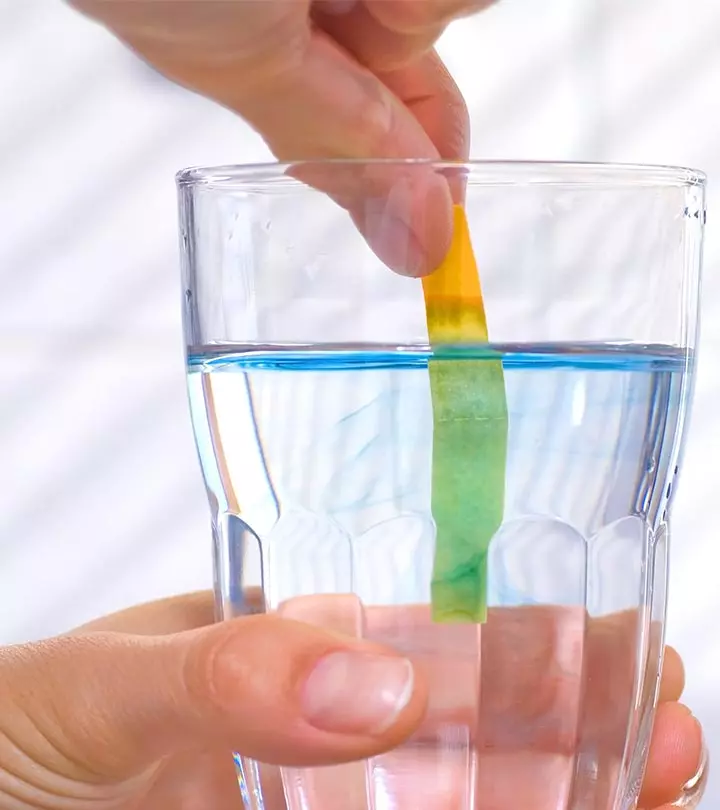
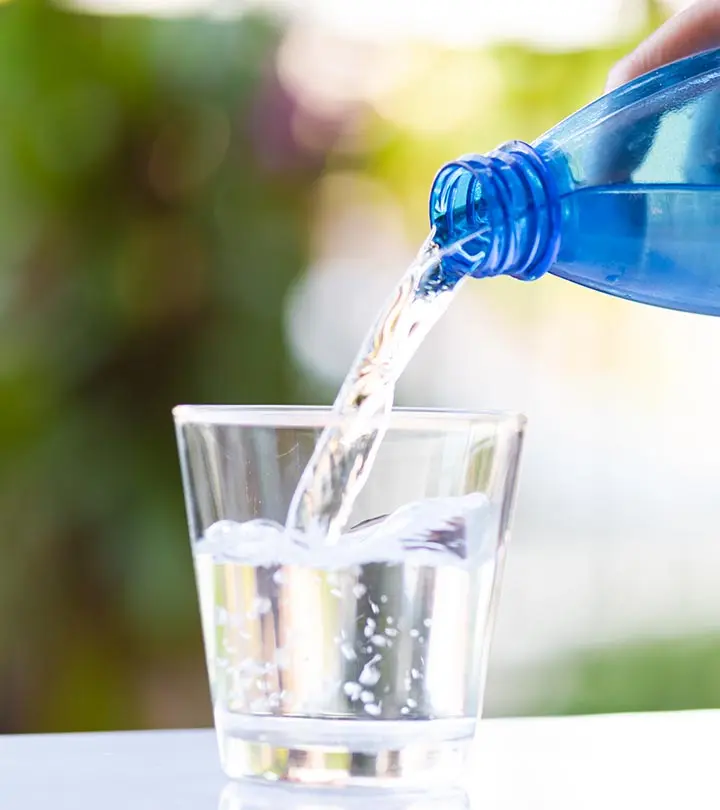
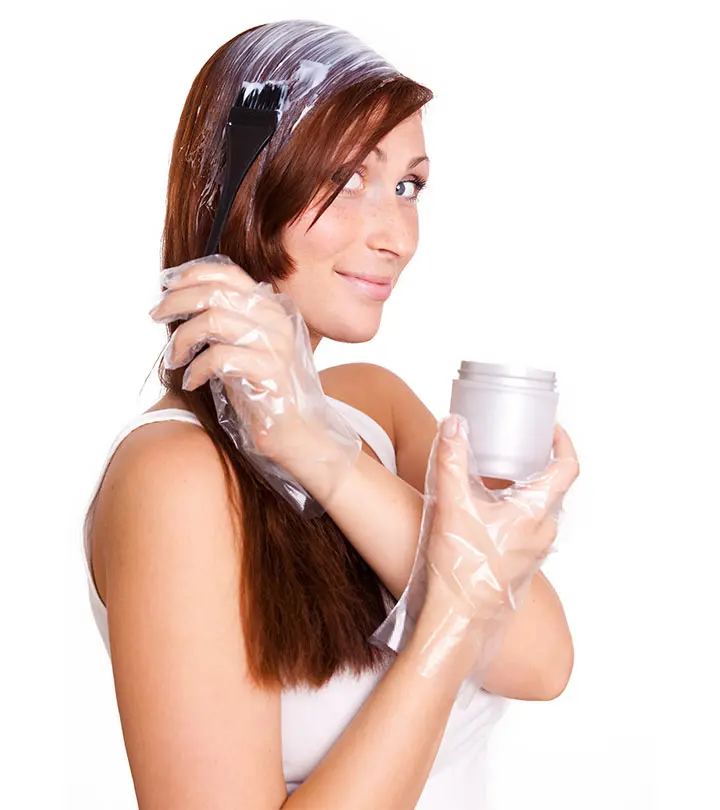
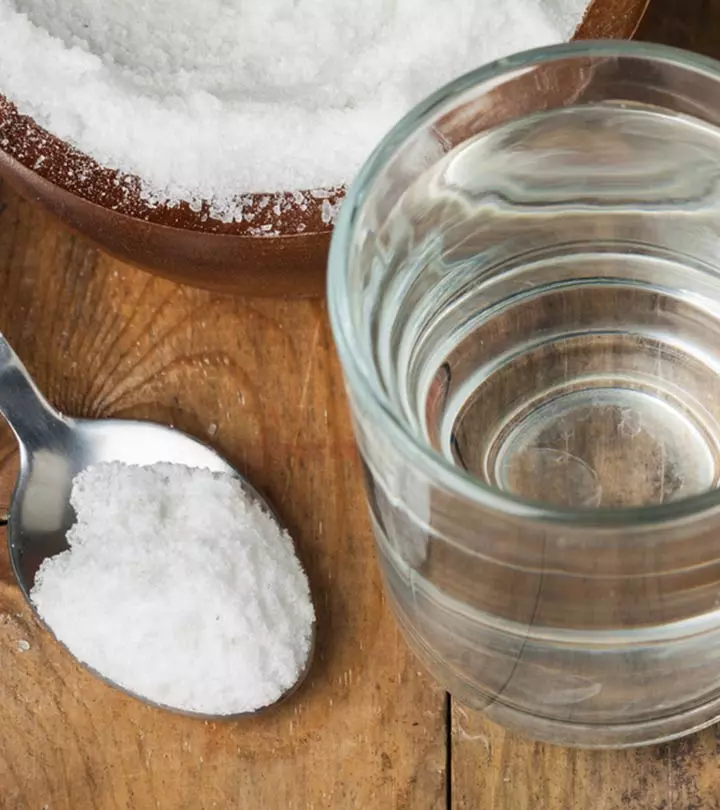

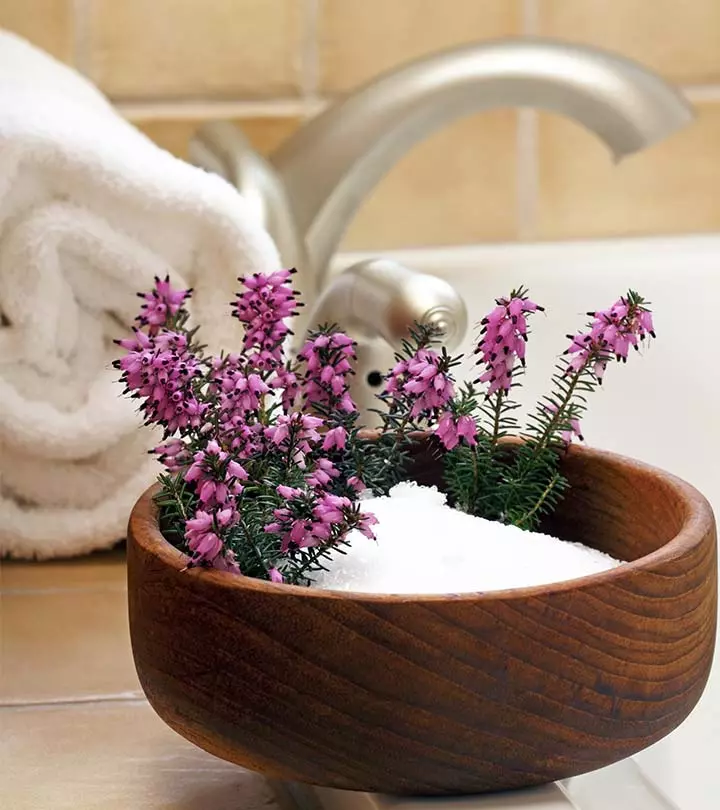
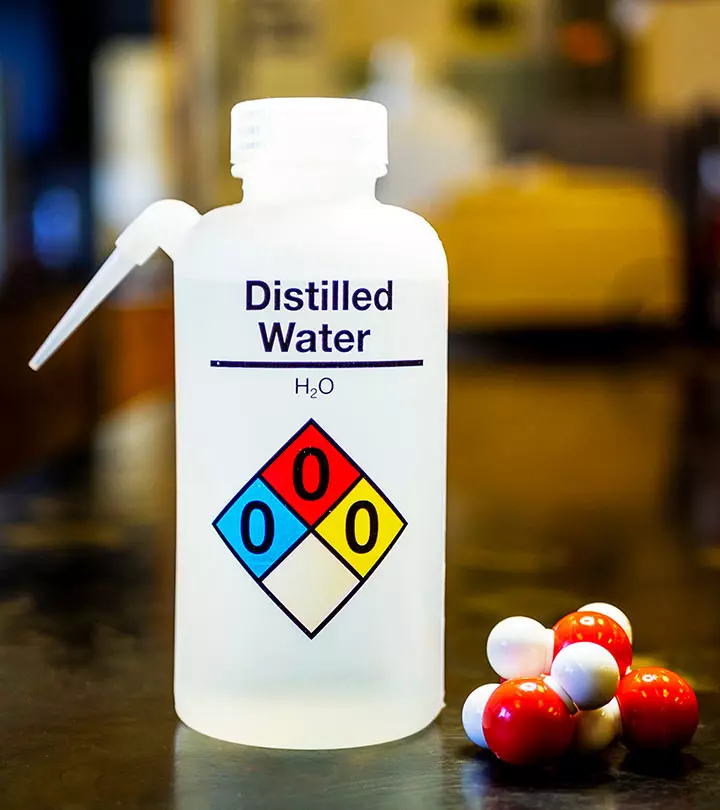
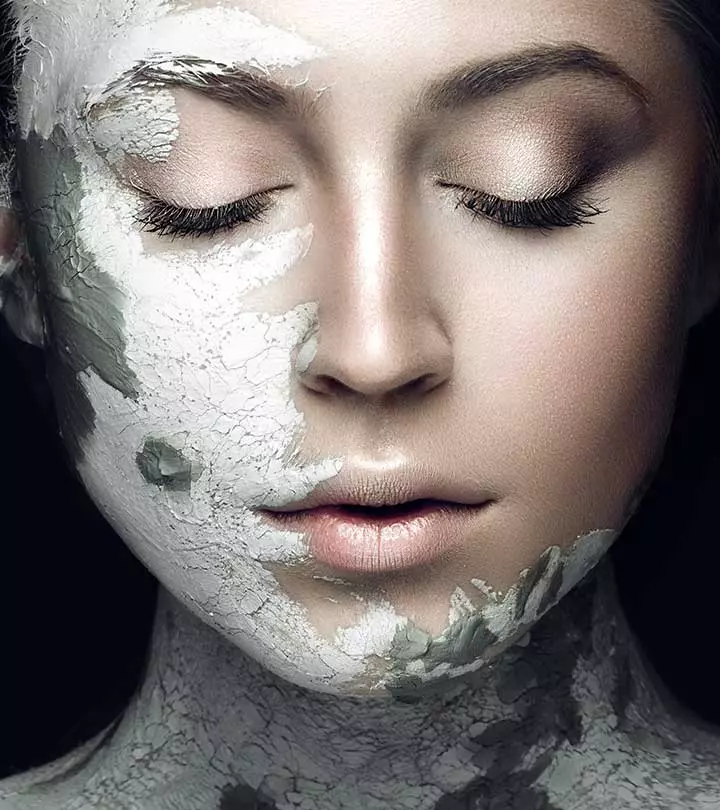

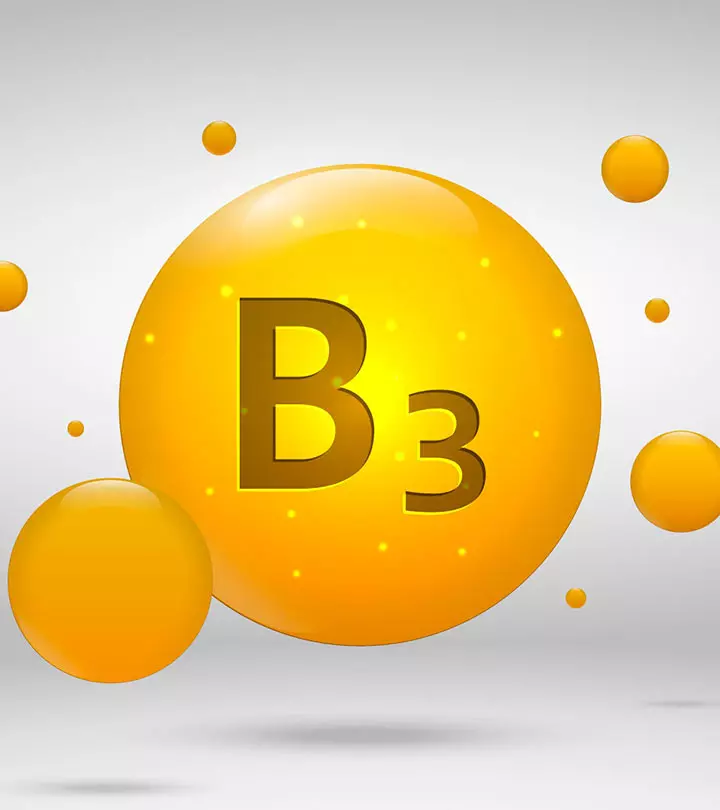
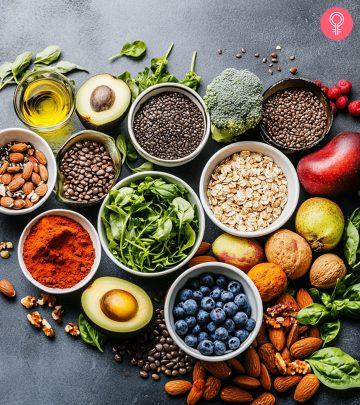

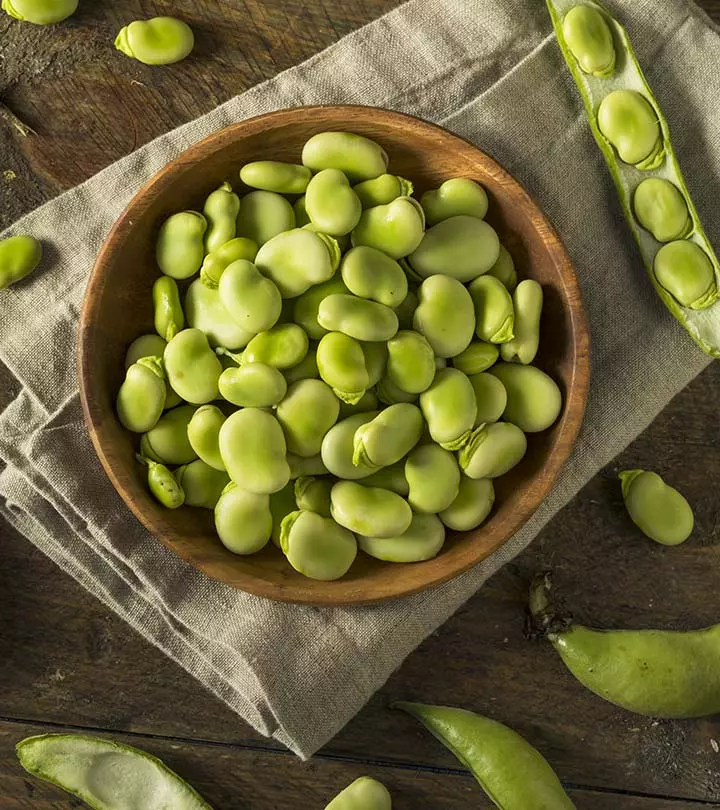

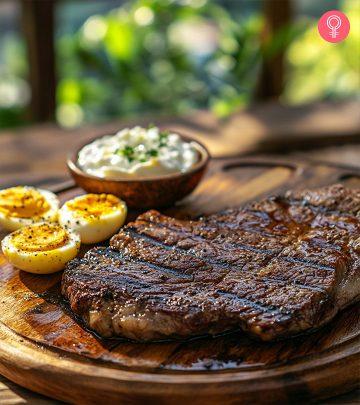
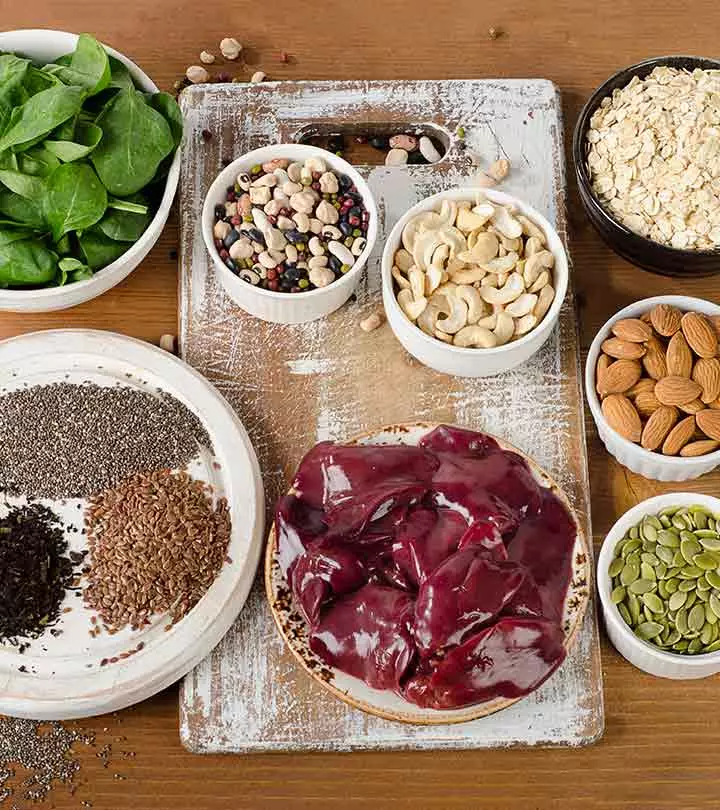
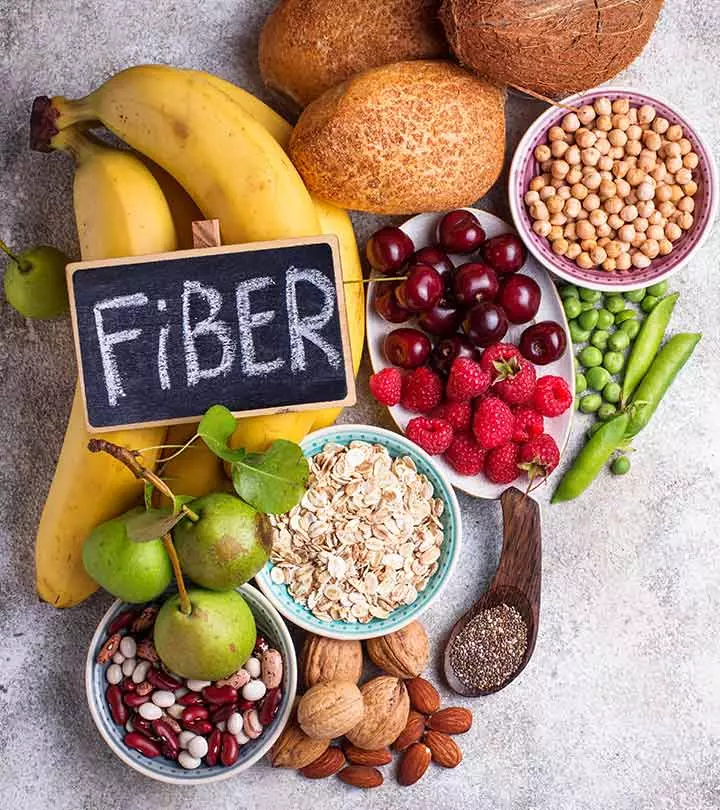
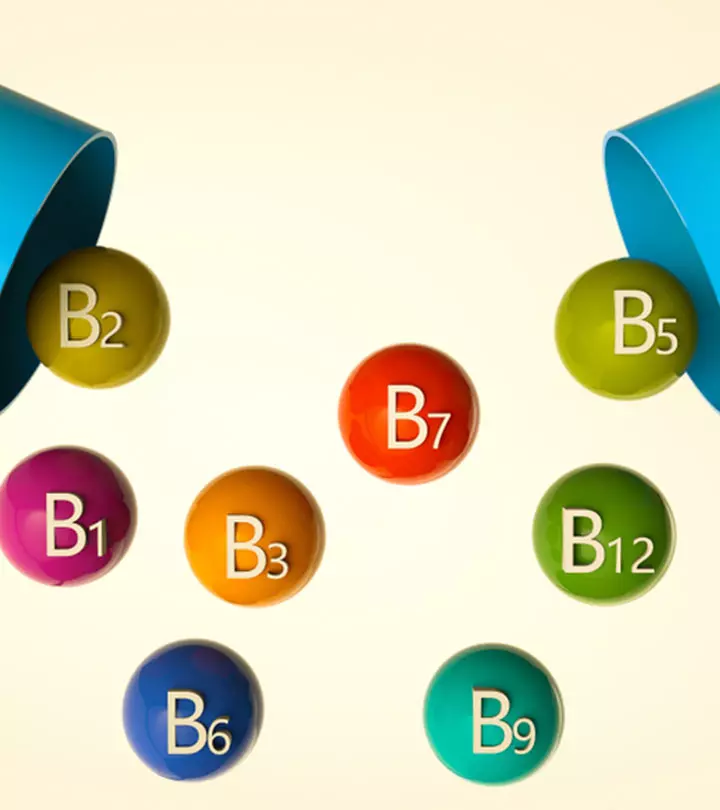
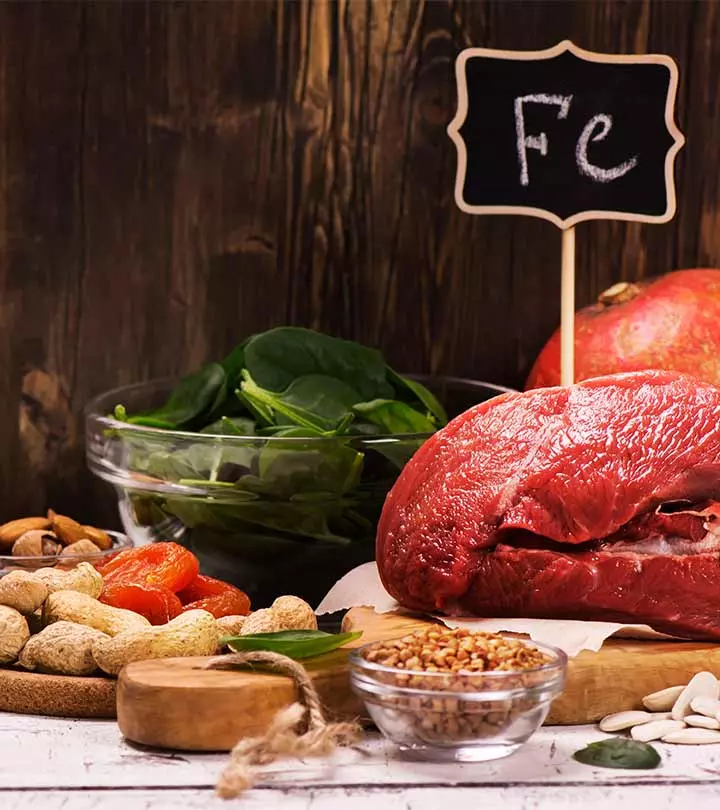

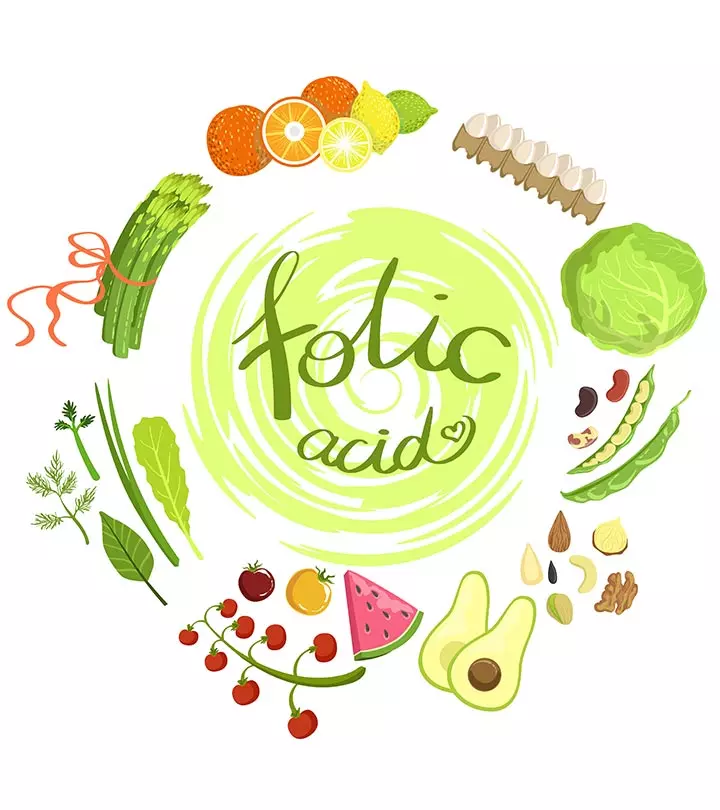
Community Experiences
Join the conversation and become a part of our empowering community! Share your stories, experiences, and insights to connect with other beauty, lifestyle, and health enthusiasts.